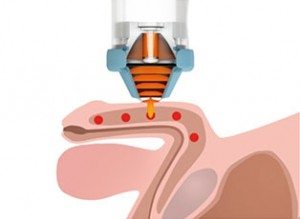Consuming disorders (EDs) are advanced mental well being circumstances characterized by abnormal consuming habits that may negatively have an effect on a person’s bodily and emotional well being. Frequent sorts of eating disorders include anorexia nervosa, bulimia nervosa, and binge-eating disorder. This case research explores various treatment modalities for eating disorders, specializing in a hypothetical patient named Sarah, a 24-year-old lady diagnosed with bulimia nervosa.
Background
Sarah is a school student who has been struggling with physique picture issues since her teenage years. After experiencing a traumatic occasion throughout her junior year in high school, she developed bulimia nervosa, characterized by cycles of binge consuming followed by purging. Sarah’s weight fluctuated considerably, and she confronted severe bodily and emotional consequences, together with electrolyte imbalances, dental erosion, and anxiety.
Recognizing the severity of her condition, Sarah sought assist from a multidisciplinary treatment workforce, which included a psychiatrist, a psychologist, a dietitian, and a medical doctor. This case research will outline the treatment interventions employed, their effectiveness, and the challenges confronted throughout Sarah’s restoration journey.
Evaluation and Analysis
The first step in Sarah’s treatment was a complete evaluation conducted by her treatment crew. This included a clinical interview, medical analysis, and psychological testing. The assessment revealed that Sarah had a physique mass index (BMI) within the normal vary however exhibited vital preoccupation with weight and body form. Moreover, she reported feelings of shame and guilt associated along with her consuming behaviors.
Based on the DSM-5 criteria for bulimia nervosa, Sarah’s diagnosis was confirmed. The treatment crew collaboratively developed a personalized treatment plan that addressed her physical, psychological, and nutritional needs.
Treatment Modalities
- Cognitive Behavioral Therapy (CBT)
Certainly one of the first therapeutic approaches utilized in Sarah’s treatment was Cognitive Behavioral Therapy (CBT). CBT is an evidence-primarily based psychotherapy that focuses on identifying and modifying damaging thought patterns and behaviors. Sarah attended weekly particular person therapy periods together with her psychologist, where they explored the underlying ideas contributing to her eating disorder.
Through CBT, Sarah learned to problem her distorted beliefs about meals and body picture. For example, she began to acknowledge that her self-worth was not determined by her weight. The therapist additionally introduced coping strategies to manage anxiety and stress, which frequently triggered her binge-purge cycles. Over time, Sarah reported a decrease in her binge eating episodes and an enchancment in her mood.
- Nutritional Counseling
Recognizing the importance of nutrition in restoration, Sarah worked intently with a registered dietitian who specialised in consuming disorders. The dietitian conducted an intensive assessment of Sarah’s consuming habits and nutritional wants. Collectively, they developed a structured meal plan aimed at normalizing her eating patterns and addressing nutritional deficiencies.
The dietitian educated Sarah about balanced eating and the significance of normal meals and snacks. Additionally they centered on helping her develop a healthier relationship with meals, emphasizing the concept of intuitive eating. Sarah learned to take heed to her physique’s starvation and fullness cues, which was a significant shift from her earlier restrictive behaviors.
- Medical Monitoring
Given the bodily health risks associated with bulimia nervosa, Sarah’s treatment included regular medical monitoring. Her major care physician conducted routine examine-ups to assess her physical health, focusing on electrolyte ranges, heart function, and general well-being. Sarah’s physician additionally provided education concerning the potential lengthy-term health penalties of bulimia, reinforcing the significance of adhering to her treatment plan.
- Group Therapy
In addition to particular person therapy, Sarah participated in a weekly support group for individuals with consuming disorders. Group therapy provided a safe house for Sarah to share her experiences, challenges, and successes with others who understood her struggles. The sense of group and help from peers was vital in decreasing her feelings of isolation and disgrace.
Throughout group sessions, members engaged in discussions about physique picture, self-acceptance, and coping strategies. Sarah discovered consolation in hearing others’ tales and realized that recovery was a shared journey. The group dynamic fostered accountability and encouraged her to remain committed to her treatment targets.
Challenges and Progress
All through her treatment, Sarah faced several challenges. Relapses in her consuming behaviors had been common, significantly during times of stress, reminiscent of exams or personal conflicts. However, her treatment workforce emphasised the significance of viewing setbacks as part of the recovery course of quite than failures.
Sarah learned to make the most of the coping strategies she developed in therapy to navigate these difficult moments. She practiced mindfulness methods, such as deep breathing and meditation, to handle her anxiety. If you have any kind of questions pertaining to where and the best ways to use erectiledysfunctiontreatments.online, you can call us at the web-site. Moreover, her assist system, together with friends, household, and group members, played a vital position in serving to her keep motivated and focused on her recovery goals.
Outcome and Conclusion

After six months of intensive treatment, Sarah made vital progress. Her binge-purge cycles decreased in frequency, and she reported feeling more in command of her eating habits. Sarah’s general temper improved, and she developed a extra constructive body image. She additionally gained precious expertise to cope with stress and anxiety, which had been important components of her recovery.

While Sarah’s journey was not without challenges, her dedication to treatment and the support of her multidisciplinary staff had been instrumental in her restoration. This case study highlights the effectiveness of a comprehensive, individualized method to treating consuming disorders. By addressing the psychological, nutritional, and medical aspects of Sarah’s condition, her treatment staff was able to help her on the path to restoration.
In conclusion, consuming disorders are complex and multifaceted circumstances that require a holistic treatment strategy. Combining psychotherapy, nutritional counseling, medical monitoring, and peer help can result in positive outcomes for people like Sarah. Ongoing research and awareness are essential to improving treatment strategies and supporting those affected by eating disorders in their restoration journeys.
